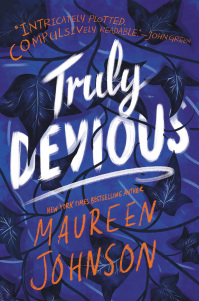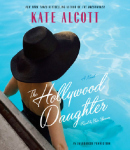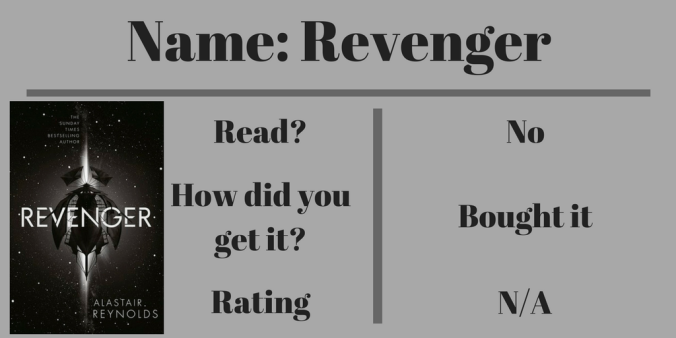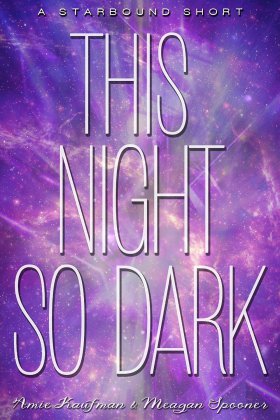I am so excited to bring you an excerpt from Maureen Johnson’s new book, TRULY DEVIOUS. See below for information about the book and Maureen, and the excerpt!
TRULY DEVIOUS
a mystery by Maureen Johnson
New York Times bestselling author Maureen Johnson has earned widespread critical acclaim, literary awards including an Edgar nomination, and legions of fans all over the world for her witty and engrossing novels for young adults. Her life-long obsession with all things mystery- and true crime-related has inspired a brand-new YA series out from Katherine Tegen Books/HarperCollins on January 16, 2018: TRULY DEVIOUS: A Mystery, featuring a smart and intrepid young detective named Stevie Bell.
acclaim, literary awards including an Edgar nomination, and legions of fans all over the world for her witty and engrossing novels for young adults. Her life-long obsession with all things mystery- and true crime-related has inspired a brand-new YA series out from Katherine Tegen Books/HarperCollins on January 16, 2018: TRULY DEVIOUS: A Mystery, featuring a smart and intrepid young detective named Stevie Bell.
Stevie is thrilled at the chance to attend Ellingham Academy, an elite boarding school in Vermont for the brightest thinkers, inventors, and artists. She’ll finally be free of her ultra-conservative parents, who are more concerned with her looks and dating life than whether she’s challenged academically. Stevie is a true crime aficionado with an inquisitive mind and an insatiable curiosity, and she’s determined to make her mark among her brilliant and talented classmates by solving an eighty-one-year-old cold case involving her new school.
Ellingham was founded in 1936 by a tycoon who wanted to make a wonderful place full of riddles, twisting pathways, and gardens. “A place,” he said, “where learning is a game.” Shortly after the school opened, his wife and daughter were kidnapped. The only real clue was a mocking riddle listing methods of murder, signed with the ominous pseudonym, Truly, Devious. It became one of the greatest unsolved crimes in history. Stevie sifts through fragments of clues from the past, while at the same time trying to manage her demanding new school life and get along with her eccentric housemates: an inventor, a novelist, an actor, an artist, and a jokester. Shockingly, history repeats itself: Truly Devious makes a surprise return, and death revisits Ellingham Academy.
Riddles, cryptic messages, and puzzles abound to make TRULY DEVIOUS an absorbing and thrilling whodunit fit for all ages. A cliffhanger of an ending leaves readers breathless in anticipation of the sequel, with many more twists and turns to come over the three books in the series.
ABOUT THE AUTHOR
 Maureen Johnson is the New York Times and USA Today bestselling author of several YA novels, including 13 Little Blue Envelopes, Suite Scarlett, and The Name of the Star. She has also done collaborative works, such as Let It Snow (with John Green and Lauren Myracle), and The Bane Chronicles (with Cassandra Clare and Sarah Rees Brennan). Maureen has an MFA in Writing from Columbia University. She has been nominated for an Edgar Award and the Andre Norton Award, and her books appear frequently on YALSA and state awards lists. Time Magazine has named her one of the top 140 people to follow on Twitter (@maureenjohnson). She lives in New York City.
Maureen Johnson is the New York Times and USA Today bestselling author of several YA novels, including 13 Little Blue Envelopes, Suite Scarlett, and The Name of the Star. She has also done collaborative works, such as Let It Snow (with John Green and Lauren Myracle), and The Bane Chronicles (with Cassandra Clare and Sarah Rees Brennan). Maureen has an MFA in Writing from Columbia University. She has been nominated for an Edgar Award and the Andre Norton Award, and her books appear frequently on YALSA and state awards lists. Time Magazine has named her one of the top 140 people to follow on Twitter (@maureenjohnson). She lives in New York City.
Visit her website at http://www.maureenjohnsonbooks.com.
Advance Praise for TRULY DEVIOUS
“Jumping between past and present, Johnson’s novel is deliciously atmospheric, with a sprawling cast of complex suspects/potential victims, surprising twists, and a dash of romance. As in her Shades of London books, Johnson remains a master at combining jittery tension with sharp, laugh-out-loud observations.” —Publishers Weekly
“Johnson deftly twists two mysteries together—Stevie’s investigation is interspersed with case files and recollections from the Ellington kidnapping—and the result is a suspenseful, attention-grabbing mystery with no clear solution. The versatile Johnson is no stranger to suspense, and this twisty thriller will leave plenty of readers anxious for more.” —Booklist
“The story raises more questions than answers, leaving readers hoping Johnson has another entry up her clever sleeves. A classic mystery that would make Dame Agatha proud.” —Kirkus
“Stevie Bell is a dyed-in-the-wool true-crime buff…a smart, relatable, self-aware protagonist. Fans of puzzles, boarding school stories, and true crime will tear through this book and love every minute.” —School Library Journal
“Told in alternating chapters, Johnson’s finely tuned plot effectively employs classical mystery tropes while maintaining a thoroughly modern sensibility. Stevie’s quirky, ragtag bunch of new friends crosses sexuality and class lines, providing teen readers with a wealth of characters to connect with.” —Horn Book magazine
“An intricately plotted, compulsively readable novel that explores not only fascinating crimes but also the mysteries of anxiety, the creative process, contemporary fame, and so much else.”
—John Green, author of The Fault in Our Stars and Turtles All the Way Down
And now, here’s the excerpt!
No one was there in her line of sight. She inched it up a bit more. Nothing. She was about to lift it when . . .
“Hello,” said a voice.
Dottie felt her heart pressing into the floor.
“Don’t be afraid,” the voice said. “You can come out.”
There was no point in hiding now. Dottie crawled out from under the blanket, clutching her book. She looked at the visitor, and then at the objects on the floor.
“Those are for the game,” the person said.
Game? Of course. The Ellinghams loved games. They were always playing them with guests—elaborate treasure hunts and puzzles. Mr. Ellingham had filled the student houses with board games like Monopoly and sometimes he even came down to play. Flashlight. Rope. Binoculars. Handcuffs. It could be a game. Monopoly had strange pieces too.
“What kind of game?” Dottie said.
“It’s very complicated,” the person said. “But it’s going to be a lot of fun. I have to hide. You were hiding in here too?”
“To read,” Dottie said. She held up the book and tried to keep her hands from shaking.
“Sherlock Holmes?” said the person. “I love Sherlock Holmes. Which story are you reading?”
“A Study in Scarlet.”
“That’s a good one. Go ahead. Read. Don’t let me stop you.”
The visitor got out a cigarette and lit it, then smoked it while watching her.
Dottie had seen this person before. This was someone who might very well have been playing one of the Ellinghams’ elaborate games. But Dottie was also a New York girl who had seen enough to know when something was off. The look in the eye. The tone in the voice. Her uncle the cop always said to her, “Trust your instincts, Dottie. If you have a bad feeling about something or someone, you get out of there. You go and you get me.”
Dottie’s instincts told her to get out. But carefully. Act normal. She opened her book and tried to focus on the words in front of her. She always kept a bit of pencil up her sleeve for taking notes. When the visitor looked away and out the glass, she pushed the pencil down and into her palm, a move she had perfected over time, and roughly drew a line under a sentence on the page. It wasn’t much, but it was a way of making a note that maybe someone would understand if . . .
No one would understand, and if was too terrifying to think of.
She shoved the pencil back into her sleeve. She couldn’t pretend to read anymore. Her eyes couldn’t track the words. Everything in her shook.
“I need to get this back to the library,” she said. “I won’t tell anyone you’re here. I hate it when people tell on me.”
The person smiled at her, but it was a strange smile. Not sincere. Pulled too far at the corners of the mouth.
Dottie became acutely aware that she was in a structure in the middle of a lake, halfway up a mountain. She ran all possible scenarios in her head and could see how the next few seconds were going to play out. Her heart slowed and the sound of its beating thudded in her head. Time was going very slowly. She had read many stories in which death was present as a character—a palpable force in the room. There was such a force in the room now, a silent visitor in the space.
“I have to go,” she said, her voice thick. She started to move toward the hatch, and the person moved that way as well. They were like players on a chessboard, working things out to an inevitable end.
“You know I can’t let you leave,” the person said. “I wish I could.”
“You can,” Dottie said. “I’m good at keeping secrets.” She clutched her Sherlock Holmes. Nothing bad could happen when she was holding Sherlock Holmes. Sherlock would save her.
“Please,” she said.
“I’m so sorry,” the visitor said with what sounded like genuine sadness.
There was exactly one move left in the game, and Dottie knew it was a bad one. But when you have no spaces left on the board you do what you have to do. She lunged for the hatch opening. There was no time to try to get onto the ladder—she dropped the book and leaped into the dark hole. She reached out blindly. Her fingers slipped along the rungs of the ladder but she couldn’t get purchase. She was falling. The floor met her with a terrible finality.
She had a pulsing moment of consciousness when she landed. There was an ache that was almost sweet and something warm pooled around her. The person was coming down the ladder. She tried to move, to slide along the floor, but there was no use.
“I wish you hadn’t come here,” the visitor said. “I really do.”
When the darkness came for Dottie, it was quick and it was total.
Share this:
- More





